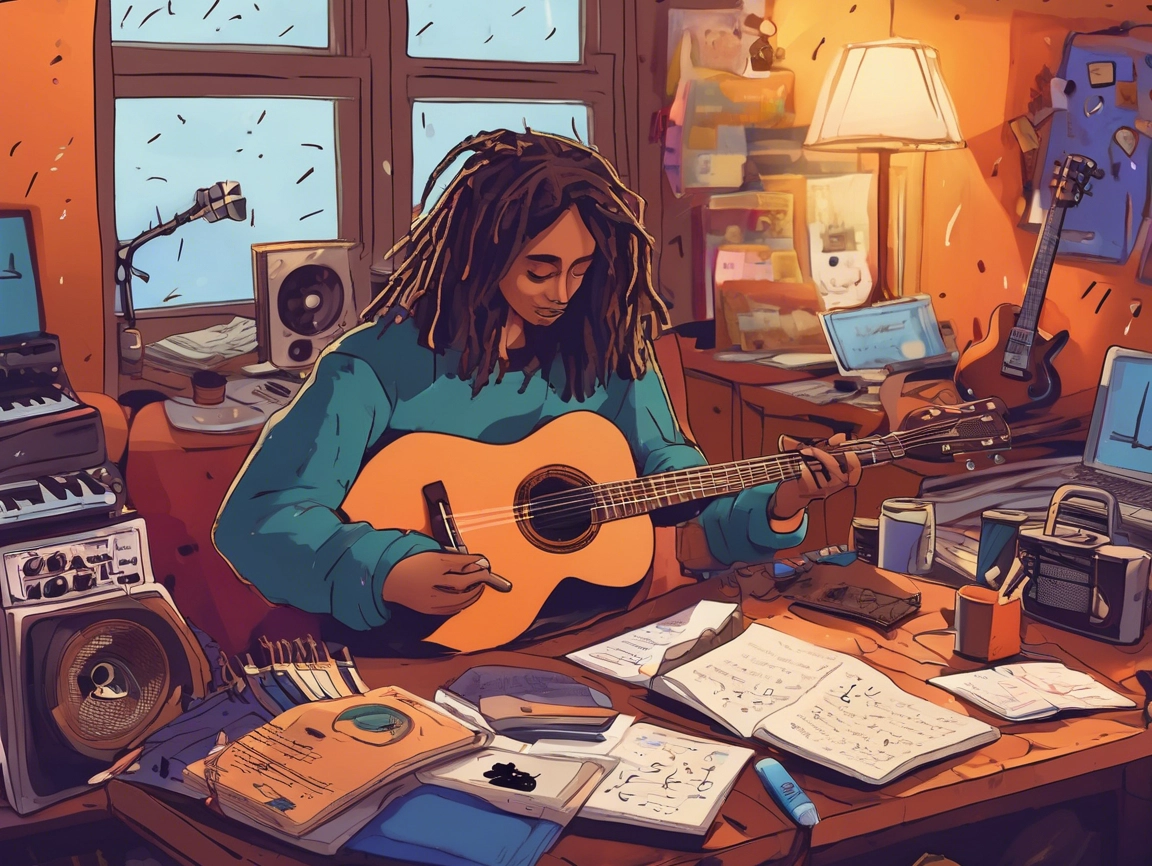Kicking off a songwriting journey starts with getting a grip on the fundamentals. The magic usually happens when melody and lyrics dance together. Think of lyrics as a story—something relatable and real. Meanwhile, melodies give life to those words, making listeners feel all the feels.
Emotion is the powerhouse in songwriting. Every great song starts with feelings—love, loss, joy, struggle. Channel that emotion into your music and you’ll connect. It’s all about being real and vulnerable with your audience.
Finding your unique voice isn’t about trying to sound like others; it’s about discovering what makes your sound yours. Maybe it’s your quirky humor or the way you turn a phrase. Whatever it is, own it and let it shine in your work.
Knowing common structures in popular music gives you a framework for creativity. Verse-chorus-bridge setups are a classic, but hey, rules are made to be broken. Once you know them, feel free to mix things up and find what works for your story.
10 Essential Tips to Get Started

Starting with what you know is a great way to kick things off. Draw from your personal experiences—whether that epic road trip you took last summer or an unforgettable love story. These real-life moments make your songs authentic and relatable.
Listening is an art and a critical skill for any songwriter. Dive into the songs you love and analyze what makes them tick. Is it the catchy hook, the lyrics that hit you right in the feels, or the beat that makes you want to move? Learn from your musical heroes and incorporate those elements into your own work.
Creating a dedicated writing space is all about setting the mood. Find a peaceful spot, clutter-free, where you can let your creativity run wild. Whether it’s in your bedroom or a corner in the basement, having a go-to place can make all the difference in finding inspiration.
Experimenting with different instruments can open up a world of possibilities. Even if you’re a guitar buff, try tinkering with a keyboard or ukulele. A different instrument can inspire a different mood or sound, breathing fresh life into your compositions.
A lyric journal is your new best friend. Keep it handy to jot down lyrics, thoughts, or random phrases that pop into your head during the day. It’s all about capturing the fleeting moments of inspiration before they drift away.
Setting goals and deadlines isn’t just for procrastinators. Plan your songwriting schedule with realistic targets and due dates. It gives you structure and motivation to keep moving forward.
Collaborating with others can be a game-changer. Partner with fellow artists to exchange ideas and styles. It not only enriches your songwriting but also enhances your approach and expands your horizons.
Embracing the rough draft is part of the process. Don’t sweat the small stuff or aim for perfection—yet. Get your ideas down, and then come back to refine them. It’s okay if things get a little messy at first.
Studying different genres will broaden your perspectives. Each genre has its quirks and strengths, so dig into them to understand and incorporate them into your own work. This exploration can lead to innovative and genre-defying creations.
Staying persistent and patient is key to success. Songwriting is a journey, not a sprint. Celebrate small wins and progress. It might take time, but with patience, progress, and persistence will come.
Enhancing Creativity and Developing Your Craft
Creativity thrives on practice. Make time each day to engage in creative exercises, whether it’s freewriting, sketching melodies, or just letting your mind wander. This daily routine keeps your imagination sharp and ready for that songwriting spark.
Connecting with songwriting communities can really inspire you. Join local workshops or online forums where you can share your work and get fresh perspectives. It’s a chance to learn from others and build a network with fellow songwriters who get what you’re going through.
Technology and software have become invaluable tools in the modern songwriting toolkit. Apps and programs can help craft beats, align lyrics, or record demo tracks. Embracing these tech resources can streamline your process and enhance your overall workflow.
Feedback is gold, but it’s important to seek it thoughtfully. Share your songs with trusted friends, mentors, or groups who can provide constructive criticism. It’s not just about receiving praise; it’s about growing and refining your art.
Balancing inspiration with discipline helps keep you on track. While some days you might feel the creative juices flowing without effort, other days require more grit. Developing a disciplined routine ensures you’re consistently making progress, even when inspiration feels distant.
